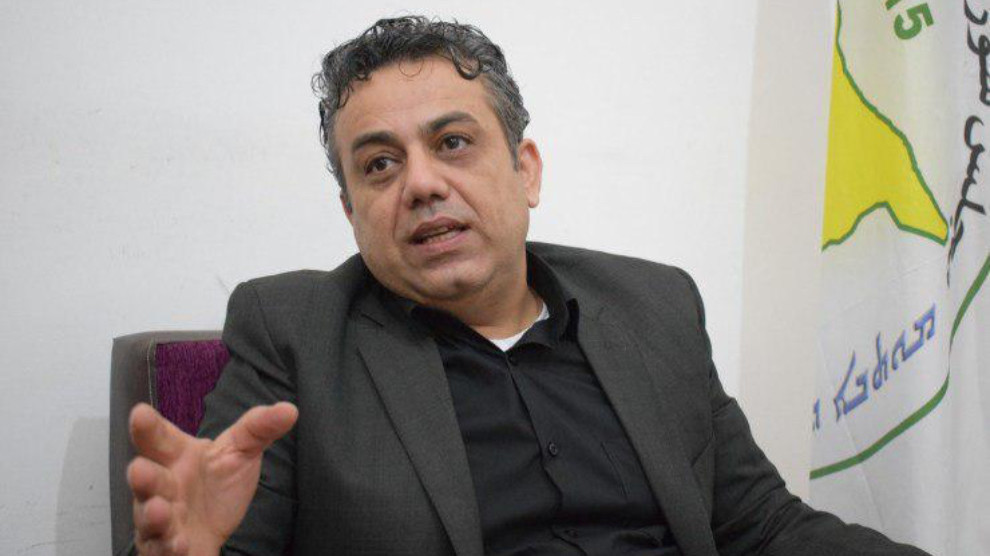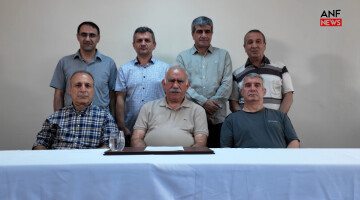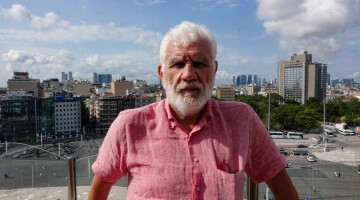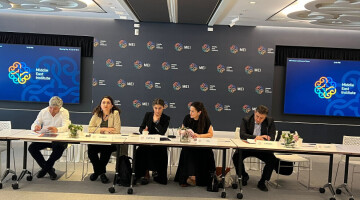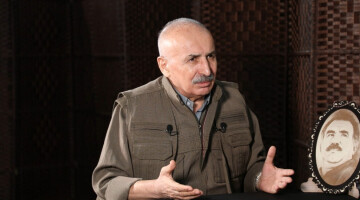Since 2014 a proxy war has been raging in Libya. On the side of General Khalifa Haftar's Libyan National Army (LNA), Russia, Egypt and the United Arab Emirates pull the strings, while the Islamist Muslim Brotherhood government is supported by Turkey, Italy and Qatar. In recent months, the alliances behind the powers have become increasingly clear. At the end of 2019, the LNA succeeded in pushing the "Government of National Unity" (GNA) to Tripoli and Misrata, led by the Muslim Brothers. Turkey then sent large numbers of drones, soldiers and jihadist mercenaries from Syria to Libya. The GNA was able to stop the LNA's advance in May and gradually began to regain positions with Turkish support. The LNA withdrew in many areas without serious resistance.
The attitude of NATO and the US changed the direction of the war
The change in the course of the war has various causes. On 14 May, NATO Secretary General Jens Stoltenberg announced that the North Atlantic Treaty Organization was ready to support the GNA. The US expressed its dissatisfaction with Russian activities in Libya at various levels. Turkey counts Libya among its "Ottoman heritage" and therefore sent thousands of Salafists and pro-Muslim Brotherhood militiamen to the region.
Egypt calls for a ceasefire
This move put Egypt, the largest regional power in North Africa, on the alert. Last week, Egyptian President Abdul Fattah al-Sisi received LNA Commander General Haftar and the Speaker of the LNA-affiliated House of Representatives, Akile Salih, in Cairo. Following the meeting, the Cairo Declaration was published, calling for a ceasefire and negotiations under UN supervision.
Al-Sarraj in Ankara
On the same day, the Islamist head of government of the GNA, Fayez al-Sarraj, visited the Turkish regime leader Recep Tayyip Erdoğan in Ankara. While there was broad international support for the Cairo Declaration, Turkey, Qatar and the GNA declared that they would not accept the demand for negotiations and a ceasefire.
"Libyan conflict is part of the war for dominance in the Mediterranean"
ANF correspondent Ersin Çaksu spoke with the Egypt representative of the Syrian Democratic Council (MSD), Sihanok Dibo, about the background to these current developments. Dibo said: "Turkey's intervention is not limited to Libya. It is a military, political, economic and ideological intervention that concerns the entire region of North Africa. This is also part of the war for control of the Mediterranean."
Against the background of the division of the Mediterranean between al-Sarraj and Erdoğan, Dibo said that Turkish expansionism is not only perceived as a threat by Egypt but also several powers in the region.
"The Cairo Declaration has received great support"
Dibo continued: "Egypt sees Turkey's intervention in the region and its attempts to revive the Muslim Brotherhood project as a major threat. A few days ago the Cairo Declaration was announced. That was not just an appeal to Haftar. It was an appeal to all parties. The appeal enjoyed broad international support but Turkey and Qatar opposed it."
“Egyptian intervention not impossible”
Asked about the possibility of an Egyptian intervention and deployment of Egyptian troops at the Libyan border, Dibo said: "Based on our observations regarding Egyptian public opinion and on our meetings with Egyptian government representatives, it is too early to speak of an Egyptian military intervention in Libya. Egypt will continue to focus on the political process. The Cairo Declaration already has broad support among the Arab states, the EU and Russia. Egypt will use the political channels. However, if the Turkish state and the Muslim Brotherhood Government insist on war, this may also have other consequences. One of them is war."
"Turkish state today is a reminder of the final stage of the Ottoman Empire"
According to Dibo, the policy of the Turkish state currently reminds of the final phase of the Ottoman Empire; “It is worth remembering the anniversary of Lausanne. What direction will the Turkish state take? This is the crucial question at this point."
"Egypt was the first blow to Turkey's Muslim Brotherhood project"
Dibo described the fall of the Muslim Brother Mursi in Egypt as the first blow to Turkey's neo-Ottoman ambitions. He continued; This has stopped Turkey's expansionism in North Africa and the project itself has become obsolete. But Turkey and its partner Qatar did not abandon their ambitions. Today they are trying to realize this project in Libya, Tunisia, Sudan, Somalia and Yemen. In this way they want to encircle Egypt. Egypt knows this very well."
"Egypt considers autonomous areas in Libya as a solution”
Asked about the background to the simultaneous meetings between Haftar and Sisi in Egypt and Sarraj and Erdoğan in Ankara, Dibo answered: "It seems difficult to put Libya under a government. The Cairo Declaration anticipates the parties to establish autonomous zones and meet in a joint parliament. Only in this way could a solution be developed."
"We see confederalism as a solution for the whole region"
Dibo stressed that the imposed nation state is the cause of the current crises in Africa and the Middle East. He said they see the solution in the model of democratic confederalism based on the democratic nation.
RELATED NEWS:

